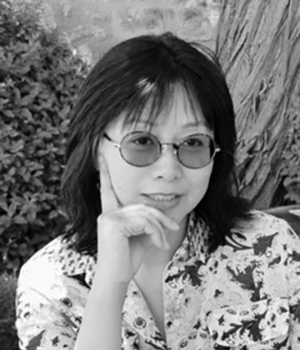
Xin Huang
Pronoun indifferent
Fall 2023 Office Hours
TBA
Education
- PhD, Women’s Studies and Gender Relations, University of British Columbia, Canada, 2010
- MA, Women, Gender and Development, Institute of Social Studies, The Netherlands, 2003
- MA, Library Science, Peking University, China, 1995
- BA, Fashion Design, Beijing Institute of Fashion Technology, China, 1993
- BA, Library Science, Peking University, China, 1985
Courses Taught
- WGS 200 Introduction to Women’s Studies
- WGS 302 Gendered Bodies: Body Politics and Cross-Cultural Perspectives
- WGS 410 Feminist Theory
- WGS 411 Feminist Research Method
- WGS 500 Gender in Global Asia
- WGS 700 Feminist Issues and Scholarship
- WGS 710 Advanced Feminist Theory
Other Activities
Director of Graduate Studies, Women’s & Gender Studies (2020-2023)
Research Interests
Gender and Life Narrative: Born in Mao era China, I write on the transformation of ideas about gender and sexuality in the Mao and post-Mao eras through archiving and analyzing oral and photo life narratives. My book (SUNY Press 2018) The Gender Legacy of the Mao Era traces the various ways the gender legacy of the Mao era manifests itself in women’s lives in contemporary China. Currently I am working on a book manuscript Picturing Self: Gender and Photo-based Life Narrative. It examines the relationship between the visual/bodily construction of gendered self and photo-based life narratives (PBLN). It explores what it means to construct a life photographically, and in what ways PBLN opened opportunities for contesting and transforming master scripts of gender, and for narrating her-story.
Language and Knowledge Construction: As a translator and scholar writing about China in English, I have been reflecting on my intellectual journey as a travelling feminist scholar, and the linguistic politics in feminist knowledge construction and circulation. In my forthcoming article “Writing With An Accent: Xenophone Scholars and Feminist Knowledge Construction”, I demonstrate that moving in-between languages and intellectual traditions, the accented writings produced by travelling scholars can serve as important modes and foci of feminist knowledge production and have the potential to produce “xenophone” scholarship that contributes to and transform feminist knowledge production. In a forthcoming book chapter “Funü: The Onion Peeling Stories”, I unpeel the multiple layers of the women’s liberation project of the Mao era, and showed that lesbians have been the familiar strangers of funü whose “comradeship” needs to be recognized, and that a queer engagement would contribute to the critical assessment and future development of Chinese socialist feminisms. The chapter also exposes the Euro-American centralism in feminist theory building and curriculum, traces the exchange, translation, and transplantation of feminist ideas between China and aboard, and underlines the importance of a reciprocal, ethical, and truthful engagement between different feminisms in feminist imagination.
Reproductive Justice and the Global Other (Non) Subject: My new research project “Reframing the “Missing” in China: Towards an Epistemology of the Global Other (Non) Subject” examines how global struggles on human reproduction intersect with modern biopolitical governance around the world and the neoliberal logic. It comprehends the ontological and corporeal interconnections between the alive and the dead, the ways the one-child who survived is imprinted with those absent, and the gender and sexual implications for this child of all in One. I am especially interested in how those who “are not (or not supposed to) be in this world” shape gender and sexual landscape today and the imagination of the future.